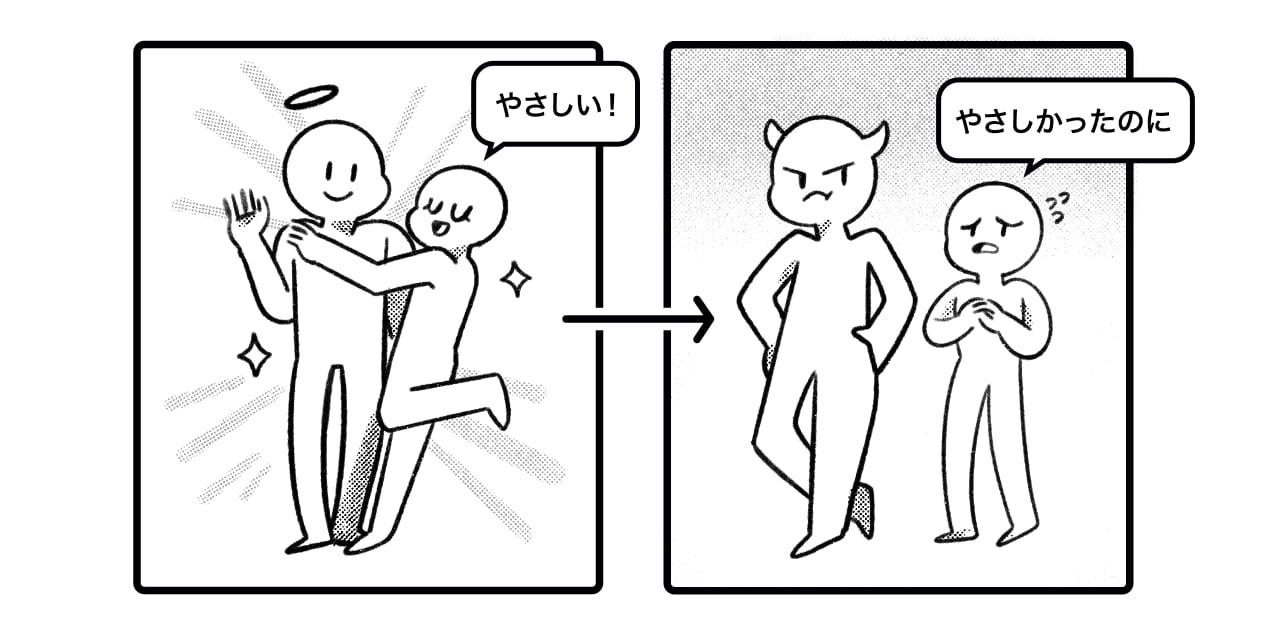Table of Contents
The Basics
〜かった is the past tense ending of い-adjectives. So while the 〜い ending shows that the adjective is in the present, 〜かった shows that it is in the past. For example, 難しい means "is-difficult," whereas 難しかった means "was-difficult."
Forming 〜かった
To use 〜かった, simply remove the 〜い ending from an い-adjective and add 〜かった. Let’s see how this works with an actual adjective:
難し
い+ かった = 難しかった
This works for all い-adjectives, without exception. 🎉 Bear in mind that the stem form of いい is よ, so the past tense of いい is よかった。
Politeness
Politeness in Japanese is marked at the end of a sentence with forms like です. If you have a sentence that ends in a past tense form い-adjective, you can level-up your politeness by adding です:
- 楽しかった + です
- was-fun (polite)
Patterns of Use
い-adjectives in the past tense form 〜かった can occur in two positions: at the end of a sentence, and immediately before a noun.
At the End of a Sentence
Just like present tense い-adjectives, past tense い-adjectives can appear at the very end of the sentence. In this case, they modify the subject of the sentence.
- 昨日見た映画は悲しかった。
- The movie that I watched yesterday was sad.
The い-adjective 悲しかった serves two functions here. It describes the quality of the subject noun, 映画 (movie), and it also marks the entire event as having occurred in the past.
Immediately Before a Noun
Past tense い-adjectives can also come immediately before nouns.
- 美しかった女優
- An actress who was beautiful
In this sentence, 美しかった (was-beautiful) is in the past tense, indicating that it is no longer true now. In other words, 女優 (actress) ≠ 美しい (beautiful), at least not anymore.
For this reason, past tense い-adjectives before nouns often occur with another word, such as 昔 (in the past) to indicate at what point in time the noun had the characteristic described by the adjective.
- 昨日、昔美しかった女優に会った。
- Yesterday, I met an actress who was beautiful long ago.
In this example, 昔 tells us when the actress was beautiful - long ago.
Let's look at a few more examples:
- あんなに優しかった彼氏は変わってしまった。
- My boyfriend, who used to be so kind, has changed (he is no longer kind).

- あの小さかった小鳥は親鳥になった。
- That bird, who used to be small, became a mother bird (she is no longer small).
- 今までで一番悲しかった映画は何ですか。
- What's the saddest movie you've ever seen?
The last sentence above might be a bit tricky because sad movies are always sad unless someone changes their story. However, since you are talking about your own feelings about the movie at a specific time in the past, 悲しかった映画 makes more sense than 悲しい映画. In other situations, where you use an adjective sad to express the general quality of the movie you watched, the present tense is more suitable.
- 昨日悲しい映画を見た。
- I watched a sad movie yesterday.
Common Mistakes
If you know anything about です, you might know that it has a past tense form too: でした. With that in mind, you might be wondering if we can leave the い-adjective in its present tense form, like 楽しい (fun), and add でした to it for the same meaning as 楽しかったです. The answer is no! Since い-adjectives can express past tense by changing their form, です is only ever necessary to mark politeness.
❌楽しいでした。
⭕️楽しかったです。